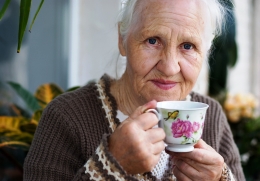16 February 2016
 While better health outcomes are well worth celebrating, the growth in Australia’s ageing population poses many challenges to the way we provide support for older people.
While better health outcomes are well worth celebrating, the growth in Australia’s ageing population poses many challenges to the way we provide support for older people.
It is predicted that by 2050 the proportion of Australians over 65 years old will be double what it is today.
Successive versions of the Federal Treasury’s Intergenerational Report have highlighted an urgent need to address what this will mean for older Australians requiring care.
Dean of Research and Innovation at UniSA Business School, Professor Andrew Beer, says recent reforms in the aged-care sector implementing a model of Consumer Directed Care (CDC), represent a fundamental shift in the way assistance for older people is funded by the Government.
“Consumer Directed Care purports to give greater choice to older people,” Prof Beer says.
“Within their allocated budgets, older Australians have the capacity to decide which services they use, who provides them, at what time, and in which location.
“Many within the aged care sector have argued for this new model for a long time, believing it will deliver a better service to older people and allow them to adjust the services they use as their needs change.
“However its seems the broader community - older Australians themselves, their carers, family members and friends - may have been caught unawares by the changes and are now confronted by a new set of decisions associated with ageing.”
CDC doesn’t come with an open cheque book and Professor Beer warns older Australians may need to find ways to meet their needs within reasonably tight budget allocations.
“CDC raises the prospect of fees and costs for a proportion of recipients, which may act as a disincentive to participate,” Prof Beer says.
“Regional residents and service providers are also concerned that government-defined programs, providing a uniform level of assistance across the nation, may overlook the higher cost of providing services in rural and regional Australia.
“While some nations around the world have embraced this type of model; others appear to have experimented with this policy direction and then turned back.
“Clearly, we need to know more about this important policy shift and the impact it is having on older Australians.
“We are looking for people over 65 years, who receive a Home Care Package and are interested in taking part in a research project that is examining these challenges, to contact us.
“Their input will be anonymous but their thoughts and support with this study will be greatly appreciated,” Prof Beer says.
Please contact the research team on 8302 4197 for more information.
Media contact: Michèle Nardelli office +61 883020966 mob 0418823673 email michele.nardelli@unisa.edu.au




